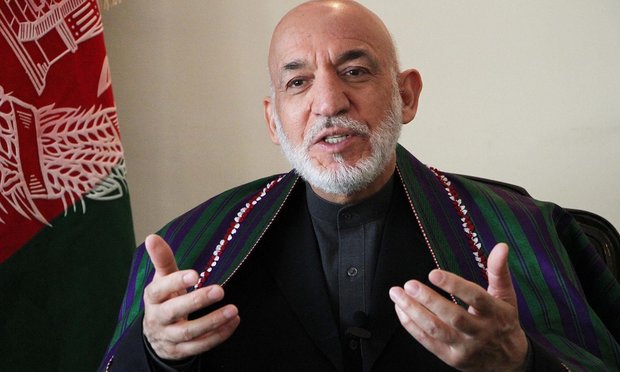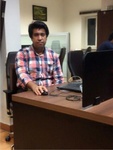Participating in ‘The Afghan Poser’ panel session, Karzai said he had invited the US to Afghanistan to bring peace and stability and defeat extremism, but after coming to the country, they destroyed it.
Karzai, who served as the president of Afghanistan between 2001 and 2014, fell out of favor with the US after he rejected the controversial bilateral security agreement between Washington and Kabul in the run up to 2014 Afghan presidential elections. Since then, he has repeatedly and vigorously criticized Washington’s Afghanistan policy.
Slamming the US, Karzai said its Afghanistan policy has been a complete failure, which has given rise to dreaded militant groups like ISIS. “It is up to the United States and Pakistan to explain the rise of ISIS,” the former Afghan President said. He said the militant group which has gained strong foothold in parts of Afghanistan and Pakistan in recent years sprouted in full presence of the US forces.
A few months ago, Karzai had accused the US of aiding ISIS in Afghanistan. “How did ISIS emerge in Afghanistan under the watch of US intelligence and military officials,” he said in an interview on RT. “We have the right to ask these questions and the US government must answer.” He also spoke of how the US bases in Afghanistan are “used” and how “unmarked, non-military coloured helicopters” supply ISIS in many parts of the country.
Commenting on terror sanctuaries in Pakistan and Trump administration’s latest diatribe against Islamabad, Karzai said the US knew it all along and how terrorism was being “used as an instrument of state policy”, but little action was taken. “Now that the US has admitted terror sanctuaries exist (in Pakistan), I hope they act,” he said, in a sardonic tone.
On the issue of growing religious extremism in the region, without mincing words Karzai called it the “product of US-Pakistan collaboration against Soviet Union”. It is pertinent to note that the militant groups like Afghan Taliban and Haqqani Network were born from the US-led war against Soviet Union in Afghanistan in 1980s.
Karzai said the West is more corrupt than countries in the South-West Asia region. “I don’t believe in western indices. They represent us as savages. We are a deeply cultured society,” adding that the word “mafia” had western roots. He also said that “others” (the West) get the money from opium production while Afghans get the bad name.
Speaking on the same panel, Russian Deputy Foreign Minister Igor Morgulov dismissed speculations about Russia’s links with the Taliban. “We are offering to create conditions for talks (with the Taliban), but there is no evidence of Russian assistance to the Taliban, he stressed.
On Asia being a new power hub, Morgulov said it is no longer a geographical entity but “a dynamic political and economic concept”.
Iranian Deputy Foreign Minister Seyed Kazem Sajjadpour also spoke at the conference and hailed Chabahar Port as an example of win-win cooperation, echoing what India’s Shipping Minister Nitin Gadkari said last week during his meeting with Iran’s Minister of Roads and Urban Development Abbas Akhoundi.
“Chabahar is a major example of success in connectivity between Iran, Afghanistan and India. There is no competition between these orders. It’s a win-win (situation) for all stakeholders”, he said. India has pledged to invest $500 million into the ambitious project in Iran’s Sistan-Baluchistan province, besides an additional $16 billion investment in Chabahar free trade zone.
Indian Foreign Minister Sushma Swaraj in her address denounced the use of terrorism as state policy. She said that it is high time world wakes up to this “global menace”.
Indian Army Chief Gen. Bipin Rawat downplayed the border tension between India and China, saying the bonhomie between New Delhi and Beijing has returned to where it was prior to the Doklam incident. “I don’t visualize a very serious trouble,” he said.
Designed on the lines of Shangrila Dialogue in Singapore, more than 150 speakers and over 550 delegates from around 90 countries are participating in the Raisina Dialogue.
Republished from: The Tehran Times


























Your Comment